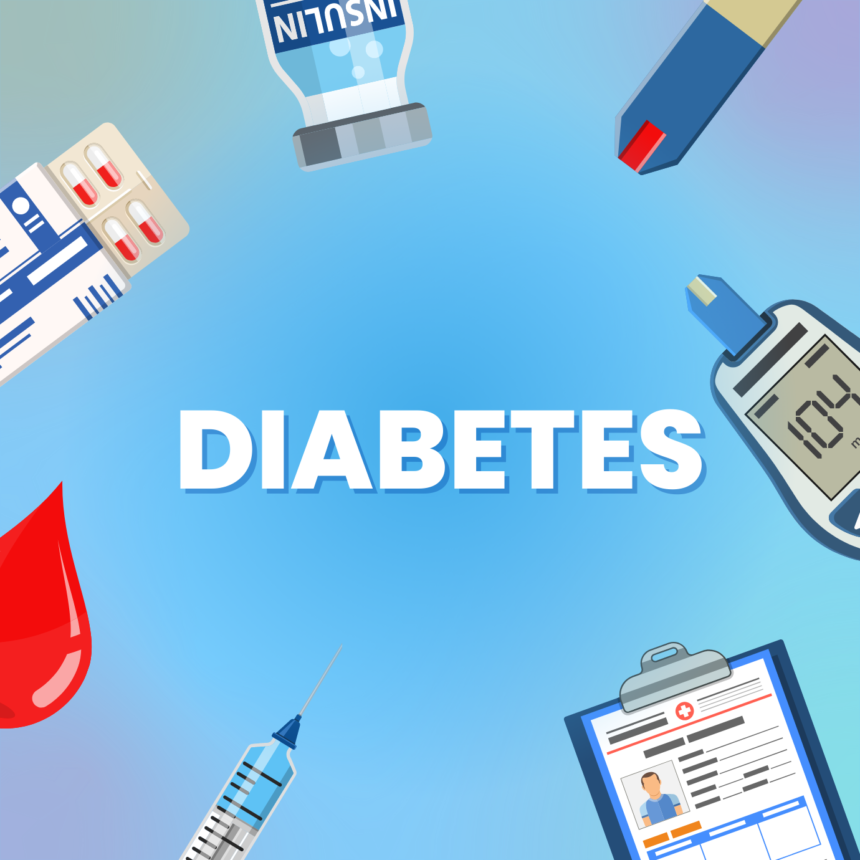Individuals with diabetes are at an increased risk of developing cardiovascular complications, such as heart disease and stroke. Managing cardiovascular risks is essential to reduce the impact of diabetes on heart health. Here are key strategies to help manage cardiovascular risks for individuals with diabetes:
1. Blood Sugar Control:
Maintaining good blood sugar control is crucial for reducing the risk of heart complications. Work with your healthcare team to set target blood sugar levels and regularly monitor your glucose levels to ensure they are within the recommended range.
2. Healthy Eating:
Adopt a balanced and heart-healthy diet. Focus on consuming whole foods, plenty of fruits and vegetables, lean proteins, whole grains, and healthy fats. Limit the intake of processed foods, sugary beverages, and saturated and trans fats, which can contribute to heart disease.
3. Regular Exercise:
Engage in regular physical activity to improve cardiovascular health. Aim for at least 150 minutes of moderate-intensity aerobic exercise per week, along with muscle-strengthening activities on two or more days per week. Exercise helps lower blood sugar levels, reduce blood pressure, improve cholesterol levels, and promote overall heart health.
4. Maintain a Healthy Weight:
Achieving and maintaining a healthy weight is essential for managing diabetes and reducing cardiovascular risks. If needed, work with a healthcare professional or a registered dietitian to develop a personalized weight management plan.
5. Blood Pressure Control:
High blood pressure (hypertension) is a common complication of diabetes and a significant risk factor for heart disease. Monitor your blood pressure regularly and work with your healthcare team to keep it within the target range.
6. Cholesterol Management:
Diabetes can lead to changes in cholesterol levels, increasing the risk of atherosclerosis (narrowing of blood vessels due to plaque buildup). Monitor your cholesterol levels and work with your healthcare team to manage them through diet, exercise, and medication if necessary.
7. Stop Smoking:
If you smoke, quitting is one of the most impactful steps you can take to reduce cardiovascular risks. Smoking significantly increases the risk of heart disease and other health complications.
8. Diabetes Medications:
Follow your healthcare provider’s recommendations regarding diabetes medications. Some medications may have a positive impact on heart health, while others may increase cardiovascular risks. It’s essential to take medications as prescribed and discuss any concerns with your healthcare team.
9. Stress Management:
Stress can impact heart health and blood sugar levels. Practice stress-reduction techniques such as mindfulness, meditation, yoga, or engaging in hobbies and activities you enjoy.
10. Regular Health Checkups:
Regularly visit your healthcare provider for comprehensive checkups to monitor your diabetes management and overall health. Early detection and management of any health issues can help prevent complications and promote better heart health.
Managing cardiovascular risks is a vital aspect of diabetes care. By adopting a heart-healthy lifestyle, staying consistent with medication and treatment plans, and working closely with your healthcare team, you can significantly reduce the impact of diabetes on your heart health and overall well-being.
